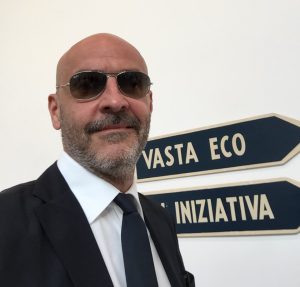The main idea of this course is to present a broad introduction to different fields of research – both on macroeconomic and microeconomic perspective – which actually are at the frontier of Economic History. Another aim of the course is to introduce students to the discussion of virtues and limitations of different historical sources and methodologies. The class will be conducted mainly through seminars, which be held by well known scholars, and discussion. Papers will be available before the seminars.
Since 2000 many well-known worldwide scholars have given seminars for this course. Amongst others I can mention: Franco Amatori, Maristella Botticini, Forrest Capie, Carlo Ciccarelli, Andrea Colli, Paolo Di Martino, Francesca Fauri, Giovanni Federico, Emanuele Felice, Giovanni Ferri, Renato Giannetti, Andrea Giuntini, Yadira Gonzales de Lara, Peter Lindert, Joel Mokyr, Alessandro Nuvolari, Giandomenico Piluso, Leandro Prados de la Escosura, Jaime Reis, Pier Angelo Toninelli, Gianni Toniolo, Luiten Van Zanden, Giovanni Vecchi, Vera Zamagni.
Academic year 2013-2014 (hours 8):
Tuesday 28th April 2014: 16-18
Carlo Ciccarelli (University of Roma Tor Vergata): Technical change, non-tariff trade barriers and the development of the Italian locomotive industry, 1850-1913
Tuesday 13rd May 2014: 14-16
Paolo Di Martino (Birmingham Business School): Risk and success: re-assessing female entrepreneurship in late-Victorian and Edwardian England
Monday 19th May 2014: 15-17
Michelangelo Vasta: Independent Invention in Italy during the Liberal Age, 1861-1913
Thursday 29th May 2014: 16-18
Andrew Popp (University of Liverpool): Writing and re-writing business history: traditions and perspectives
The “rules of the game” of the course are the following. First of all the course requires your active role in the discussion of the seminar. Each student should play as a «discussant» in at least one seminar (please coordinate a full list and send me it soon). What I mean for «discussant» is that you make direct questions to the speaker during the seminars.
Moreover, each student must write a Review Report (RR) for all four papers presented. The RR should be articulated as follow: i) discuss context and research questions; ii) assess source, historical material and data; iii) provide a discussion of approach and methods; iv) suggest improvements and refinements for the analysis.
Final evaluation will be based on the role as «discussant» and class participation (25%) and on the quality of RRs (75%).

